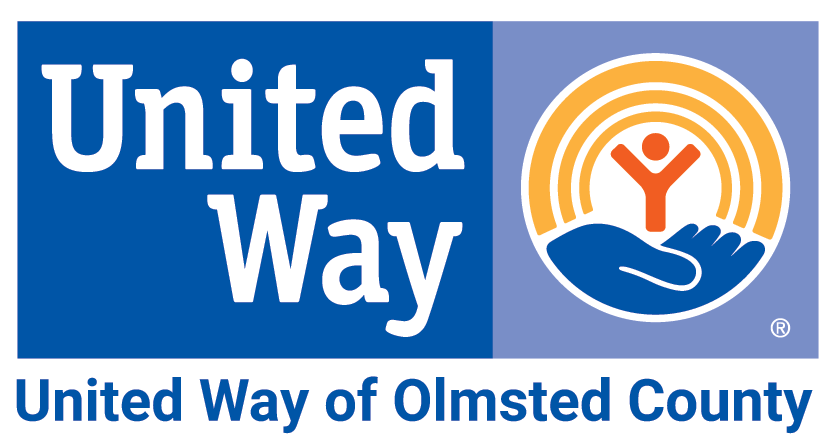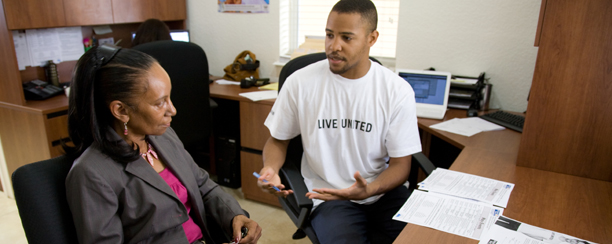
Helping individuals and families meet their basic needs and achieve financial stability.
United Way strives to support people as they journey toward financial independence. People living in financially unstable homes frequently encounter other foundational quality-of-life needs, such as good health and quality education. Without a stable and family-sustaining income, people can find themselves falling behind rather than moving forward in creating a good quality life.
Did you know...
- At least 8% of Olmsted County children live in poverty, and 1/3 of Olmsted County adults feel financially stressed.
- Over 600 people are experiencing homelessness in Southeast Minnesota on any given night, including approximately 166 children under 18 who live with their families. Housing instability is directly linked to poor health outcomes, educational outcomes, and employment outcomes.
- Food insecurity is harmful to all people, but it is particularly devastating to children. Proper nutrition is critical to a child's development. In Olmsted County, nearly 6% of households are food insecure.
- The Earned Income Tax Credit (EITC) is one of the largest and most successful federal anti-poverty programs, yet more than 1 in 5 eligible Minnesota taxpayers does not access the EITC.
United Way and our community partners fight for:
- Housing stability
- Access to adequate, nutritious, and culturally appropriate foods
- Navigation and referral services
- Access to financial services
Sources
U.S. Census Bureau. (2022). Poverty Status in the Past 12 Months. American Community Survey, ACS 5-Year Estimates Subject Tables, Table S1701.
Olmsted County Community Health Needs Assessment. (2022). Olmsted County Public Health Services, Mayo Clinic, and Olmsted Medical Center.
Wilder Research. (2024). 2023 Minnesota Homeless Study, Southeast Minnesota Counts.
Internal Revenue Service. (2024). EITC participation rate by states: Earned income tax credit.
United Way’s Financial Stability Programs
Free Tax Preparation
United Way of Olmsted County and VITA work to provide free tax preparation services for taxpayers in Olmsted and Dodge Counties. Thousands of low-income households access this necessary service for free, improving access to tax credits and bringing dollars back into our community in the form of tax refunds. Learn more
211 is a free and confidential information and referral service that is available 24/7/365. Assistance is available by phone, chat, text, and internet search. Trained information and referral specialists connect community members with local services and resources that meet their needs.
Information about a wide range of human and social services is available, including senior services, education, childcare, legal assistance, transportation, housing, youth services, employment, food, counseling, family services, volunteering, health services, and much more. Learn more
Learn about our grants to help individuals and families meet their basic needs and achieve financial stability. Click here

